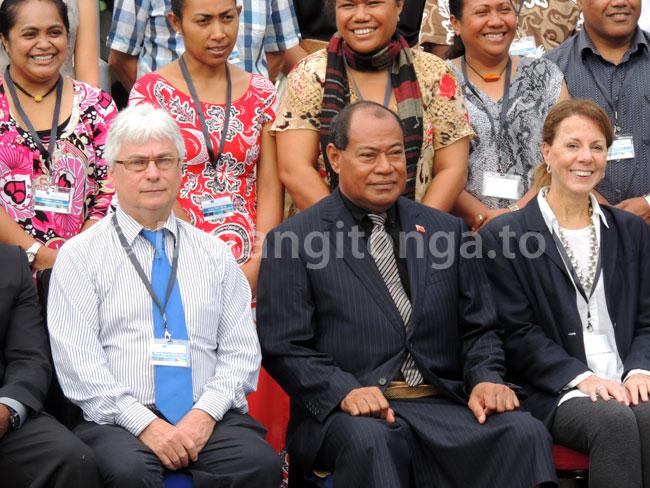Source: Matangi Tonga Online. Republished With Editor's Permission.

The Pacific Islands need to protect their deep sea minerals, Tonga's Deputy Prime Minister Hon. Samiu Vaipulu told a Pacific-ACP States Regional Workshop on Deep Sea Minerals Law and Contract Negotiations that opened at the Fa'onelua Convention Centre, in Nuku'alofa today on March 11.
Representatives of 15 Pacific States are attending the week-long workshop.
Mike Petterson the Director of SOPAC, the Applied Geoscience and Technology Division of the Secretariat of the Pacific Community (SPC), said today that the workshop will focus on the legislative and regulatory aspects of deep sea minerals.
He said the workshop is aimed at sharing information on a number of developments that SOPAC is working on, including developing legislation for the extraction of deep sea minerals. "What we want achieve is largely capacity building, as like any other economic activity, Pacific states are a little bit compromised by multinational and well-resourced companies coming in," he said.
"We need to know how to negotiate and drive a hard deal. We have to prepare ourselves as best we can by developing our negotiating skills, along with a network of people that we trust and know, and to work with industries and countries that we feel that will be responsible and want a long-term working relationship, and for our communities to benefit while the environment is protected as best we can."
Mike said some Pacific Island countries already had legislation for deep sea minerals. But it was a new thing for the Pacific Islanders to consider who has the rights to the minerals, who gains from it and how can we put in place a transparent system, while looking at the environmental issues, he said.
He said for decades the main issue had been the lack of knowledge as to where minerals are, what type of minerals are out there, as there are many deposits to discover in the ocean.
"But we are now at a point where there are few areas in the Pacific that have been identified to be attractive and that's a breakthrough. Now it is becoming an economic reality and to make sure that countries maximize the benefits, which is never easy and requires hard work so we want representatives to walk away armed with more knowledge and be aware of the range of issues we have to cope with," he said.
Legislation
Hannah Lily, the Legal Adviser for the Pacific Ocean Deep Sea Minerals Project said on March 5 that the project stresses the importance for countries to put in place robust law and regulatory mechanisms for the national management of deep sea minerals before negotiations take place.
"We strongly recommend that countries have these mechanisms in place before any individual project negotiations start. Dedicated seabed minerals legislation will assist the country to meet under international law, such as protection of the main environment. It will provide clarity, stability to that country's operating environment and what it expects from mineral companies."
She said seabed mineral resources represent an exciting new economic prospect for Pacific Islands, but, in order to make the most of this opportunity, governments will need to find responsible exploration and mining companies, and work to set terms that provide sufficient protection and financial return to the country.
The workshop held on behalf of the SPC-European Union Pacific Deep Sea Minerals Project is the second of five regional technical workshops. It is attended by government officials, non-government organisations, enivronmental groups and others.
The first Regional Workshop on Geological, Technological, Biological and Environmental Aspects of Deep Sea Minerals was held in August 2012 in Fiji.
Tonga
Tonga has three mineral exploration companies, the Bluewater Metals South Pacific Ltd. of Australia, Nautilus Minerals Tonga Ltd., and KORDI, the Korean Ocean Research and Development Institute.
Tonga also has in place a Minerals Act which started in 1949 to establish the ownership and provide for the control of minerals found within Tonga. It is understood that a Deep Sea Mining Bill was drafted last year.
Caption: From left, Mike Pettersen SOPAC Director and Deputy Prime Minister Hon Samiu Vaipulu at Fa'onelua Convention Centre in Nuku'alofa on March 11, 2013.





